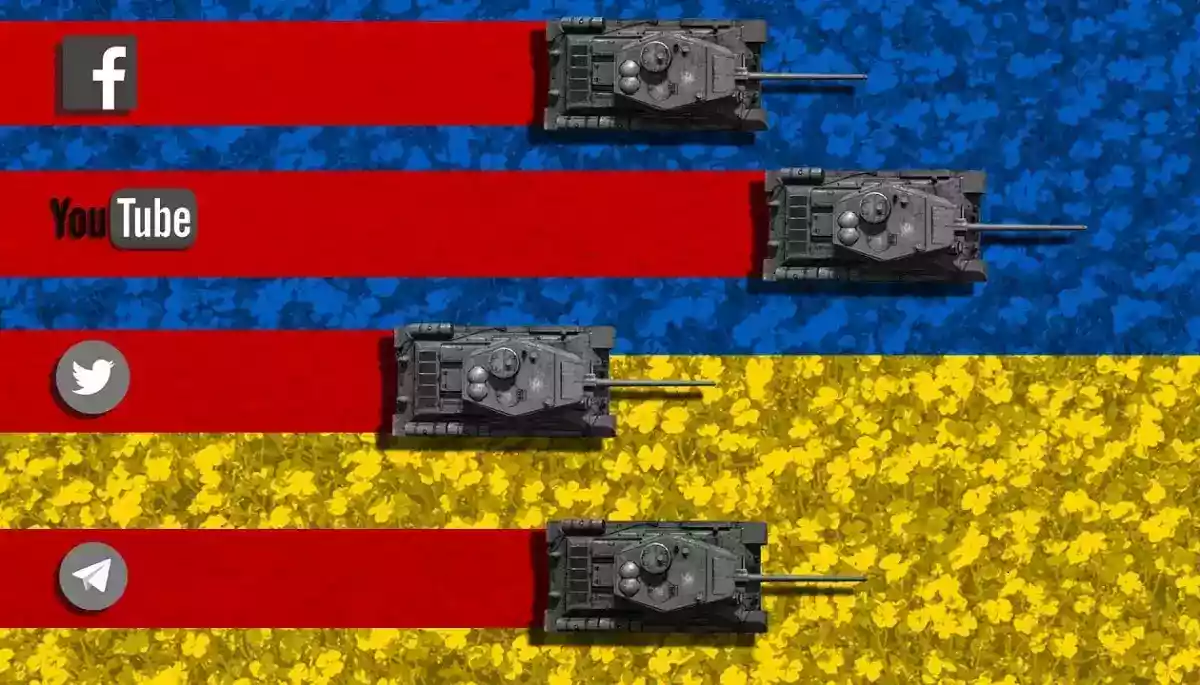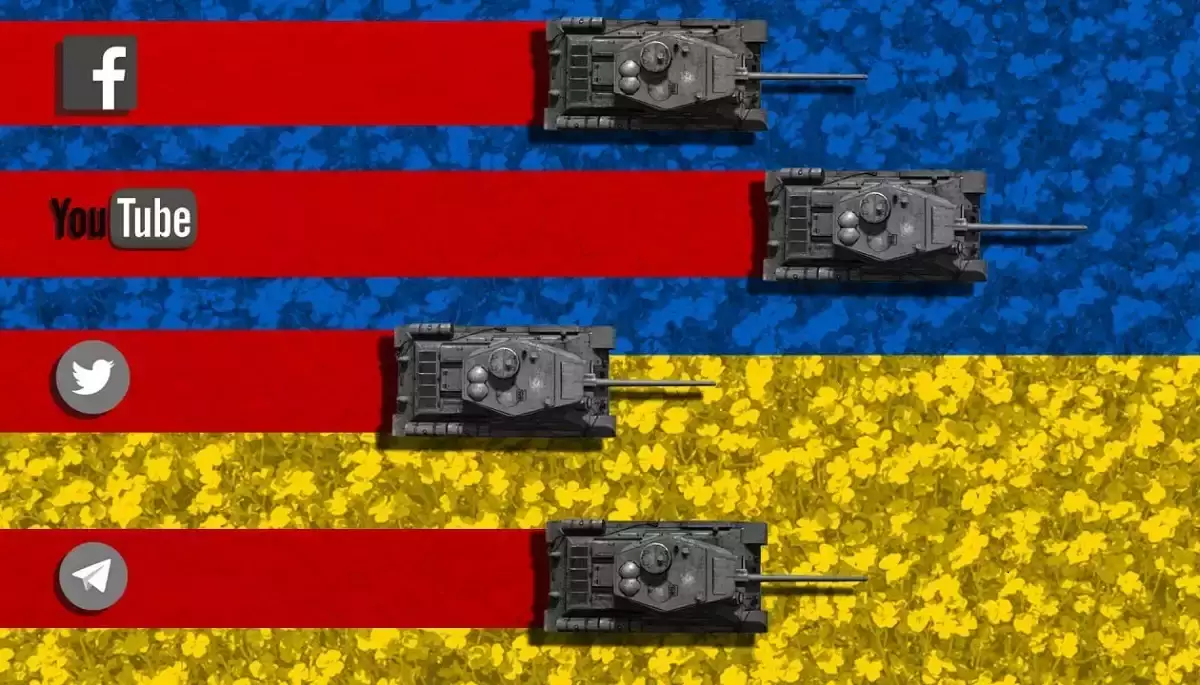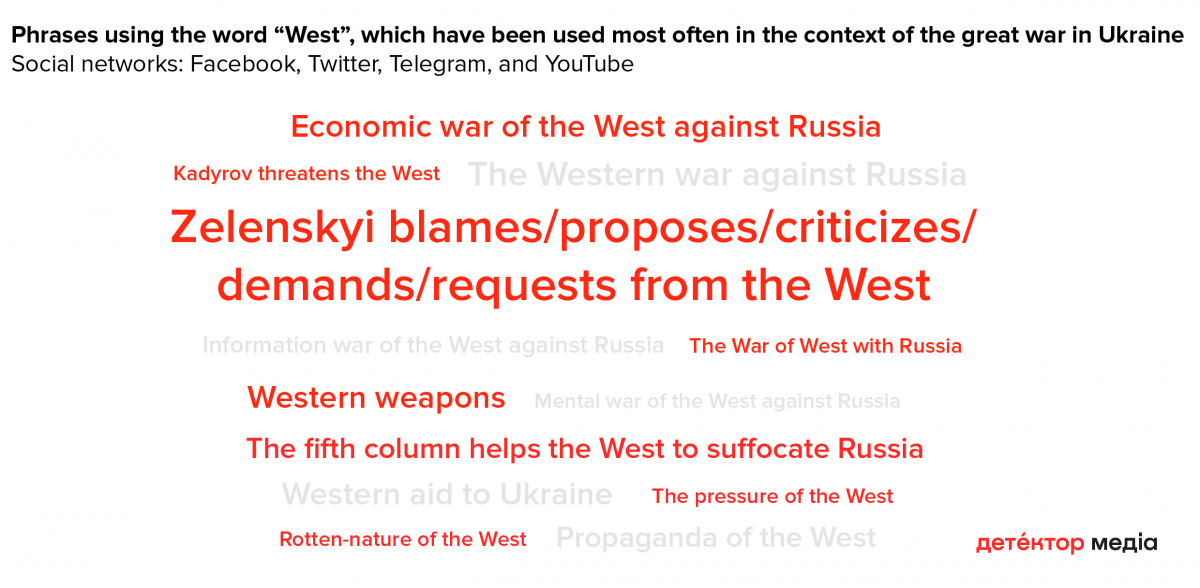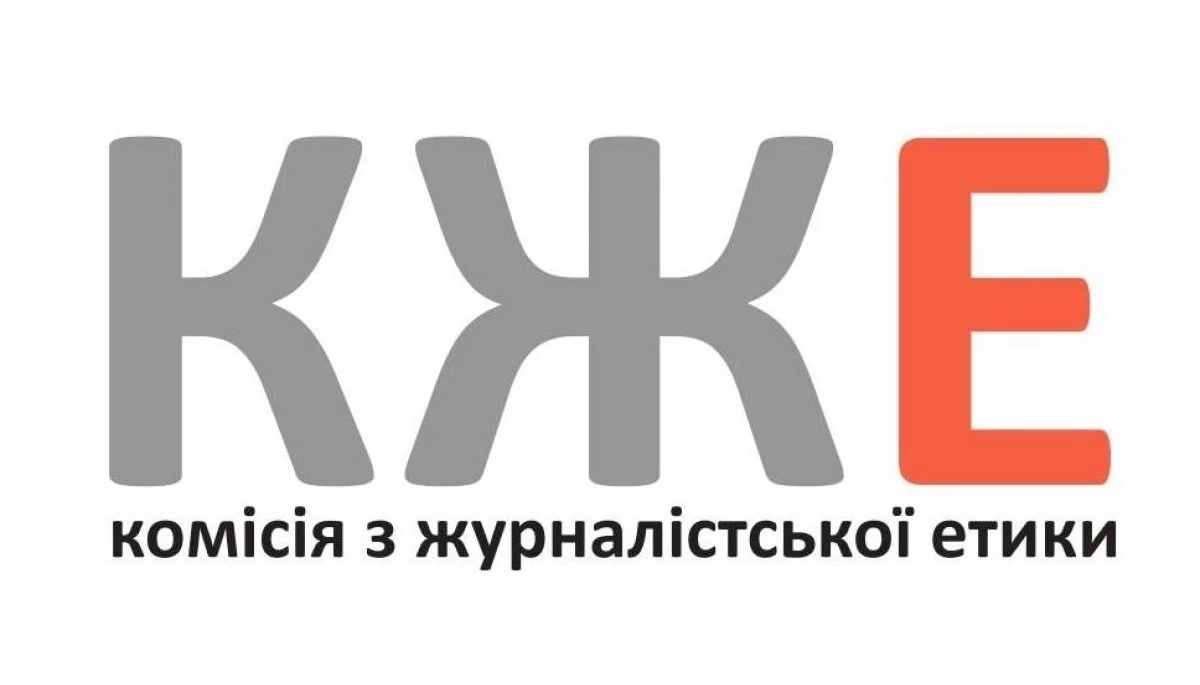
"Digging their own grave." An analysis of Russia's anti-Western rhetoric about the war in Ukraine
"Digging their own grave." An analysis of Russia's anti-Western rhetoric about the war in Ukraine


Investigating Russian disinformation in Ukrainian social networks, Detector Media noticed an increase in mentions and manipulations around foreign states and their leaders who support Ukraine in a great war against Russia. On the information front, the Kremlin is trying to discredit as many foreign states as possible, shifting the responsibility or accusing others of provoking an attack on Ukrainian territories, allegedly waging war against Russia itself, and other things that the Kremlin can fantasize about. Detector Media analyzed the Ukrainian social media segment to find out which countries were most often mentioned in the context of the war in Ukraine after February 24th, 2022, and to examine anti-Western rhetoric after a full-scale invasion.
Methodology
The object of research: using machine learning and elements of artificial intelligence, Detector Media analyzed more than 65 thousand posts on Twitter, Facebook, YouTube, and Telegram.
Sources: Ukrainian segment of Facebook, YouTube, Telegram, and Twitter. The Ukrainian segment comprises the posts of profiles, pages, groups, and channels that are located in Ukraine, have indicated their location as in Ukraine, and have a large share of the Ukrainian audience.
Monitoring period: February 24th - May 30th, 2022.
Research methodology can be found here.
Specific features of Telegram, Twitter, Facebook, and YouTube in the context of the great war in Ukraine
Telegram has grown in popularity and audience in recent months, and the number of channels has also increased - these were launched both by Ukrainian state bodies and media, as well as by Russia. Although the "Ukrainian voice" in Telegram has grown, the pro-Kremlin one is still loud and vocal. Most often, such Telegram channels have reported on the foreign states and their leaders in the context of the war in Ukraine: "Open Ukraine | Открытая Украина " (the channel's audience grew by 171 thousand subscribers, comparing the numbers from February and May 2022), "UA Denazification | Денацификация UA " (launched on February 24th, 2022, has more than 96 thousand subscribers) and " OdessaZa" (launched on April 4th, 2022, has 3.4 thousand subscribers). The last two are interconnected through citations and reposts and do not try to mimic the Ukrainian channels. Meanwhile, "Open Ukraine" was launched back in April 2019; it has criticized the activists and the government, in particular during the presidency of Petro Poroshenko. Even though the channel presents itself as Ukrainian, messages about "Nazis in Ukraine" and narratives "about Western governance" have appeared on it, among other things. Recently, Ukrainian NSDC’s Center For Countering Disinformation added it to the list of Telegram channels which are engaged in the information terrorism.
Facebook, compared to Telegram, has much less Russian disinformation about Russia's war in Ukraine. On the contrary, many publications refuted Russian disinformation and had anti-Putin sentiments. Moreover, extensive Facebook posts were full of attempts to analyze the war in Ukraine. In particular, current events were compared with other historical examples - the conflict in Transnistria, the Finnish war, etc.
Twitter was also no less active in promoting political theses. Ukrainian politicians, journalists, and activists began to use it to communicate with Western partners and colleagues, sharing stories about the realities of the war in Ukraine. At the same time, Russian disinformation has somewhat changed the form of communication in the social network. Ukrainian pro-Russian Twitter segment synchronized with other social networks and spread a lot of political myths, such as trying to heroize Russia and its "goals"; entrench the cultivation of "us-them" ("peacekeepers/saviors-banderivtsy-nazis"); imposing the idea that "only Russia can overcome nazism in Ukraine, because the West ignores the problem", etc. The limitations of other social networks deprive users of the opportunity to hide or veil the meaning of their posts. Therefore, Twitter can be called a "straightforward" social network to spread these manipulative theses. Despite the 280-character limit, some users manage to "stuff" several key messages with Russian propaganda aimed at both the United States and Europe at once. If we were to give a concise list of the Kremlin’s theses on this topic, it would look like this:

Text on the image: Many mercenaries were sent to Ukraine, 10 British soldiers were killed. This is why they are so furious. The Russian army is standing near Kyiv, the Armed Forces of Ukraine are surrendering, and the fascists are shelling peaceful civilians. They have been bombing Donbas for 8 years, the war will soon be over. Americans, as usual, reap what they have not sown with someone else's hands. Europe will pay.
The anti-Western rhetoric on YouTube has been somewhat different from other social networks. For example, Eastern and African countries were often mentioned on YouTube. Kazakhstan was also mentioned, as it has been distancing itself from Russia and refused to hold a victory parade this year; the US seeks to make India its partner and displace Russia; Italy and other countries are increasing their gas supplies from Algeria. One of the main focuses on YouTube was the topic of weapons - who gave military aid to Ukraine, who refused, who decided to start manufacturing military equipment because of the war in Ukraine, etc.
Dynamics of countries’ mentions in posts about the great war
Posts about different countries in the context of the great war in Ukraine have been mostly shared from February 24th to March 2022. This is due not only to the increase in the number and more active dissemination of pro-Russian messages in the Ukrainian segment of all social networks but also to neutral news and statements by world leaders who condemned and reacted to Russia's full-scale offensive against Ukraine. Nevertheless, we can only relatively talk about the posts’ neutrality because the issue of war has confused their tonality. If earlier the news reports stating the facts were neutral, now almost all publications were negatively or positively colored. Herein we speak of the dominant emotion in the post and not about the positivity or negativity of the author's position.
A moderate social networks activity was at the end of March, and the beginning of April, when the Kyiv oblast was liberated from the Russian military and everyone saw the consequences of Russian occupiers’ atrocities. This surge was caused not only by the reactions of Western politicians but also by the Kremlin's attempts to distance itself from war crimes and blame Ukraine and Europe for committing or "faking" them. The social media information landscape covered mostly stories about the Ukrainian military and foreign journalists. The peak of activity in April happened on April 25th, when a series of explosions blasted in the unrecognized Transnistria, which formed the basis of most of the manipulations during this period, namely about the alleged involvement of Transnistria and Moldova in the war in Ukraine. The last noticeable "increase" in activity was at the beginning of May when news about the detention of a pro-Russian blogger Anatolyi Sharyi in Spain broke out.
Instead, the conditional "silent period" (days with the least number of posts) was used to try to promote the older messages, often about the alleged "nazis" - these could be either the next "finds/evidence" (fake documents or photos) or simply publications with manipulative accusations against Ukraine.
At the same time, pro-Russian users broadcasted the Kremlin's rhetoric in the messages and fakes copying the dictionary of Russian sponsored media. This can be seen from the adjectives often appearing in posts about the Russian-Ukrainian war. For example, the war in Ukraine was more often called a "special military operation"; Russian military was presented as a so-called "peacekeeping force" led by Putin; ongoing mentions of the "civil war" concept, etc. The latter rarely happens, mostly in "retrospective" posts about the so-called "8 years" (read more about this myth here). Below you can see the adjectives that were most often used in posts on this topic (the size of the word indicates its usage).
Key messages and tactics of Russian propaganda
1. Russia shifts the responsibility for the attack on Ukraine to other foreign states. The Kremlin often resorts to the "mirroring" tactic, accusing others of its own crimes. This was the case with the Russian military’s crimes, which were blamed on the Ukrainian defenders. In addition to various accusations, there were attempts to justify Russia's actions. In particular, Russians have revived its "without a single shot" rhetoric and drew parallels with the occupation of Crimea. With the help of such messages, Russia seeks to justify its crimes on the territory of Ukraine and create its image of a "peacemaker".
A lot of effort was put into spreading the message that Russia had been provoked to launch a full-scale invasion. The primary blame for the war in Ukraine was placed on the "collective West" and NATO, less often on individual states - the USA, Canada, Poland, Britain, and even France. The list of "reasons" for the attack on Ukraine was also extended; it starts from "saving Ukrainians" to "preventing world hunger." For example, one of the "explanations" is that the attack happened to save Ukrainians from "foreign rule" because the USA, in collaboration with the "nazi" Ukrainian authorities, planned to turn Ukraine into a "legal organization" in America. At the same time, the "collective West" was accused of "breeding terrorists since 1945" - with similar theses, Russians tried to promote the so-called need for the "denazification" of Ukraine. As expected, the information that "Ukraine has bombed Donbas for eight years" was written many times, while the democratic world watched this happen and did not react in any way.
2. Russia puts a label on "Anglo-Saxons". Such labels need to be used in as many different messages as much as necessary. For example, according to this scheme, Russians have tried to divide Ukrainians into "normal ones" (in the sense of Kremlin propaganda - "pro-Russian") and the so-called "banderivtsy / nazis". If Russia acts according to the old scheme, then we expect that this topic will be promoted, and we might see an attempt to deepen the "split" (as the Kremlin sees it) between the European states.
For a long time, Russian propaganda tried to convince Ukrainians that Europe is allegedly "bad" and that "no one is waiting for Ukraine there". Even more radical messages against Europe are being pushed on Russian society. This discourse continues to develop, and there are no reasons to believe it will be abandoned in the near future. However, the "first birds" flew out with the launch of the "Anglo-Saxon" label. There is no established list of states and territories that Russia refers to as the so-called Anglo-Saxons. Depending on the Kremlin's policy change, different countries either enter or leave it [the Anglo-Saxon label]. However, Russian propagandists have recently tried to put the United Kingdom and the USA under this label. One of the consequences of it was a (so far, a single one) message about their pro-Europeanism in a positive (in Russia's view) sense: "Europe is divided into a conditionally pro-European part and a pro-Anglo-Saxon part." Also, little by little, Russians are trying to shift the emphasis from the "collective West" to the so-called "Anglo-Saxons": "Anglo-Saxons are deceiving Europe, drawing it deeper and deeper into the war with Russia" or "Europe, like Ukraine, is not an enemy of Russia."
3. Russia uses distorted history to justify its aggression in Ukraine. Rewriting history is an all-Russian trend aimed at replacing basic things, which are then layered with modern solutions. In particular, it was argued that Russia could not be an aggressor because it is supposedly thanks to it that "other European states have appeared" in the world - meaning Lithuania, Latvia, Estonia, Ukraine, etc. Such messages are not new to Russia. Propaganda speculates on historical facts, claiming that Ukraine (and now other European countries) are "not full-fledged states" that supposedly have no right to exist because they do not have their own history, culture, etc. Instead, they should "be in debt to the great Russia" and its "great Russian culture." In this way, Russia also wants to assert itself at the expense of other states, diminishing their importance. In a pseudo-historical context, it was mentioned that "Ukraine was never sovereign", because at first it was a part of different states, and then it was constantly "managed by Western curators". For example, Vladimir Putin called Ukraine a country "named after Lenin", claiming that Russia created sovereign Ukraine and that Ukrainian culture as such is a fake concept because it did not exist before.
4. Russia intimidates other states that they need to prepare for war. Using this method, Russia seeks to create the appearance of its power and show that it is better not to argue with it because some states would be "digging their own graves" by going against Russia. These intimidation tactics have been known since the Cold War, so it is expected that Russia will resort to them in its attempts to polarize the world. The Kremlin mainly addressed its threats to Lithuania, Latvia, Estonia, Poland, France, and other European states; blackmailing them by saying that Russia would not stop at Ukraine and would continue with the war if it [Russia] will be "interfered" with or more sanctions will be introduced against it. Apart from the EU states, there were also hints about Kazakhstan.
5. Russia opposes itself to Europe and spreads the myth of "world Russophobia". This Kremlin’s myth consists, in particular, of Russians’ attempts to present themselves as victims, which is conducted through the flashmobs on social networks, and lots of complaining. By depriving their messages of context, Russian propaganda reproaches Western companies for leaving or suspending work in Russia, highlights incidents in other countries with attacks or threats against Russians, criticizes sanctions against Russia, etc.
At the same time, they spread the thesis that it is not Russia that suffers from the sanctions introduced against it because of the war in Ukraine, but so do the countries that introduced them in the first place, in particular, the USA and the EU countries. In such posts, it was said that due to the sanctions the prices of energy carriers would only increase for the EU countries, while sanctions would not affect Russia in any way. Using such messages, Russian propaganda seeks to create the appearance of a "decaying Europe" in which prices are rising, businesses are closing, and people are suffering. Propagandists seem to suggest that in such conditions, the EU "will not last long and collapse", unlike Russia. The thesis about the "decaying West" is not new; it has been used for a century and a half, contrasting Russia, which is apparently actively developing, and Europe, which is having "very very hard times".
6. Russia distorts reality, claiming that "Ukraine was bothering everyone and that the continuation of this war is profitable for the West." In addition to the anti-Russian sanctions, global support for Ukraine has become an equally irritating topic for Russia. Any help to Ukraine is presented in the Kremlin as the desire of the West to "continue the war against Russia, especially using the hands of Ukrainians", to exhaust Russia, introduce new sanctions, and destroy its economy. Russia believes that the Western support for Ukraine is not genuine - it is allegedly beneficial for them that the war in Ukraine would last a long time. In fact, a protracted war in the center of Europe will not have good consequences for other countries either. Formerly Detector Media explained why Ukrainian issue is essential for other countries and why it is beneficial for their governments to end the war as soon as possible. However, Russia continues to promote the thesis that "Ukraine has bothered and disturbed everyone" and caused envy. The context of "envy" entails the fact that Ukrainian land is a "sweet piece" (a trump card) and, allegedly, if it were not for Russia, Ukraine would have come entirely under "the Western rule".
At the same time, Russia has also been promoting the message that "Europe and the USA have started doubting Ukraine’s victory", meaning that the American and European leadership no longer believes in the victory of Ukraine as much as beforee and thinks that it will have to make concessions to Russia. Similar theses were spread about the Japanese citizens, who allegedly went against their own government and took the side of Russia in this war. In this way, propaganda seeks to minimize the value of the aid that comes to Ukraine from Western partners, devalue the attempts of allies to end the war, and create the image that "no one needs Ukraine". Below you can see the word combinations with the word "West" that were most often used in the posts on this topic (their size indicates usage).

Most often Russians use the word "West" with a critical and negative connotation. Due to the needs of the information war, Russian propagandists revived the black-and-white picture of the Cold War world during which Russia represented the "good ". Meanwhile, the broad concepts of the "West" or "the myrmidons of the West" are used to degrade everyone considered an enemy of Russia. Therefore, Russia continues to stick to the label about "the collective West", on which it then builds its narratives and messages about "foreign governance", "the war of the West against Russia", "giving up on Ukraine", etc.














